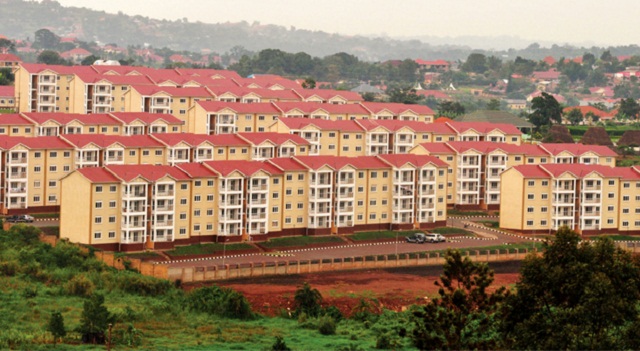
Arthur Mukembo is the regional director for RE/MAX in East Africa, an international real estate brand established in 1973 in Denver, Colorado and now present in more than 100 countries and territories with a network of over 115,000 real estate professionals in 7,500 offices. He spoke to Isaac Khisa in an exclusive interview about the future outlook of Uganda’s real estate sector.
What is your management style as a director?
I aim to foster an innovative and highly collaborative environment where anyone across the organization is able to contribute to implementing our vision, and can step up to lead a service improvement or other initiative they are passionate about. At all times the focus should be on exceeding our clients’ expectations.
What is your assessment of demand for office space in Kampala at the moment compared with the same period a year ago?
We are seeing a continued slowdown in demand for Grade B office space in the Central Business District, perhaps symptomatic of the overall drop in economic activity over the last 3 years. Grade B refers to relatively ordinary office space with basic amenities. Landlords are addressing demand challenges by creating smaller office units, mixing use of buildings to include retail and others, and allowing subletting, among others.
We have however observed good growth in demand for similar grade office space in upcoming residential cum commercial neighborhoods like Bugolobi, Kamwokya, Kololo, Muyenga, Ntinda, and Bukoto likely buoyed by small businesses wanting to cut down on rent expenses. We observe that there is still good opportunity to supply decent small to mid-size traditional and shared office spaces in these emerging neighborhoods.
Demand for Grade A office space, which typically includes the highest caliber of standard of finish, amenities and professional management and so on, remains resilient especially from multi-nationals and other large corporates albeit with low supply.
Which properties are now on demand compared with others and why?
We are seeing strong demand for distressed assets, which are essentially properties being foreclosed or to be auctioned by a financial institution where customers have been consistently unable to service their instalment obligations. Prospective buyers operate under the assumption that these transactions come at a considerable discount off Market Value and are therefore good bargains.
We also continue to observe good demand for affordable housing albeit not entirely effective demand. Affordable housing projects like Venus Enclave Apartments and Villas in Najjera are doing well by responding to the price sensitivity of the market. We do note however, that supply is still lagging demand considering the complexities of delivering truly affordable housing.
How can ordinary people in Uganda afford to own their own property?
How can we achieve affordable housing? I believe affordability speaks to one’s ability to purchase property at a given price. In this regard, several interventions can help, for example, we are seeing property developers that are offering instalment terms to prospective buyers. There is also scope to formalize incremental housing schemes that can enable prospective homeowners to access completion loans or purchase properties at certain levels of completion such as at shell or roofing level and so on, in well planned estates, completing the structures at their own pace as their finances allow.
We can also embrace housing cooperatives which enable communities or organized groups to buy or rent housing units at a subsidy by leveraging economies of scale, and rent-to-own schemes that enable aspiring homeowners to pay small premiums on top of their rent over time that go toward eventually owning the property they are renting without having to put down a large deposit upfront.
Other more sophisticated products like Real Estate Investment Trusts enable individuals and institutions such as SACCOS, Pension Schemes, or Investment Groups to obtain income, capital gains or both through buying and selling their publicly tradable shares of a specialized investment vehicle that owns one or more pieces of income generating real estate.
 The Independent Uganda: You get the Truth we Pay the Price
The Independent Uganda: You get the Truth we Pay the Price



